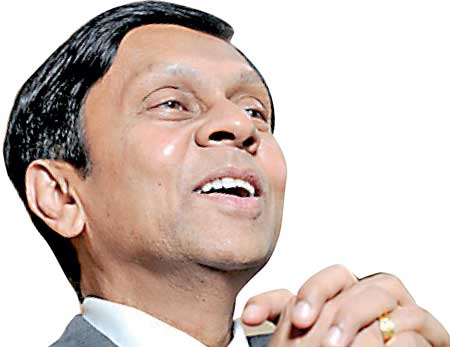Reply To:
Name - Reply Comment
Last Updated : 2024-04-27 08:30:00
_DM-11(9).jpg)
.jpg)
 The Dailymirror sat with former Ce ntral Bank Governor, Ajith Nivard Cabraal to discuss current economic, trade and monetary issues, as well as certain allegations against the Rajapaksa administration. Excerpts.
The Dailymirror sat with former Ce ntral Bank Governor, Ajith Nivard Cabraal to discuss current economic, trade and monetary issues, as well as certain allegations against the Rajapaksa administration. Excerpts. tion of levying taxes according to its priorities, policies and overall economic strategy. The determination of how much taxes, on what incomes, and how often, are some of the decisions that have to be made by governments from time to time, and such policies are given effect through the budget and other legislation. At the same time, any government’s tax policy implementation is almost always a “trade-off” between competing interests. Very often, the Finance Minister has to strike a balance, because if certain taxes are waived from one section of the population, other taxes have to be imposed on another group of persons, or some public investment has to be curtailed or stopped. If not, the taxes foregone would have to be borrowed from foreign or local sources, or like what happened prior to 2006, certain state assets will have to be sold in order to procure the funds needed to meet the increased expenditure.
tion of levying taxes according to its priorities, policies and overall economic strategy. The determination of how much taxes, on what incomes, and how often, are some of the decisions that have to be made by governments from time to time, and such policies are given effect through the budget and other legislation. At the same time, any government’s tax policy implementation is almost always a “trade-off” between competing interests. Very often, the Finance Minister has to strike a balance, because if certain taxes are waived from one section of the population, other taxes have to be imposed on another group of persons, or some public investment has to be curtailed or stopped. If not, the taxes foregone would have to be borrowed from foreign or local sources, or like what happened prior to 2006, certain state assets will have to be sold in order to procure the funds needed to meet the increased expenditure.lalith Thursday, 19 February 2015 10:09 AM
Very good interview and this should be translated to all languages and give publicity so that the new governor can do better than this or he is on acid test along with the new government . What Sri Lankan want is economic development so that it will be eventually felt to all as the country and the population is very small.Politics of hatred shall be dealt with correct performance indexes.

Add comment
Comments will be edited (grammar, spelling and slang) and authorized at the discretion of Daily Mirror online. The website also has the right not to publish selected comments.
Reply To:
Name - Reply Comment
US authorities are currently reviewing the manifest of every cargo aboard MV
On March 26, a couple arriving from Thailand was arrested with 88 live animal
According to villagers from Naula-Moragolla out of 105 families 80 can afford
Is the situation in Sri Lanka so grim that locals harbour hope that they coul

26 Apr 2024
26 Apr 2024